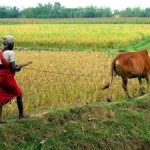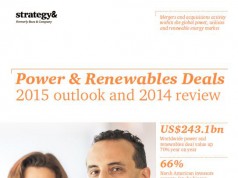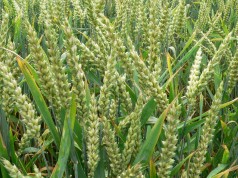This report focuses on the relationship between women and natural resources in conflict-affected settings, and discusses how the management of natural resources can be used to enhance women’s engagement and empowerment in peace-building processes. Part I examines the relationship between women and natural resources in peace-building contexts, reviewing key issues across three main categories of resources: land, renewable and extractive resources. Part II discusses entry points for peace-building practitioners to address risks and opportunities related to women and natural resource management, focusing on political participation, protection and economic empowerment.
Key Findings:
- One of the unexplored entry points for increasing women’s contributions to peace-building relates to the ways in which they use, manage, make decisions on and benefit from natural resources.
- In particular, women’s multi-faceted relationship to natural resources, coupled with shifting gender norms in conflict-affected settings, provides opportunities to increase their participation in decision-making at all levels, and to enable them to engage in economic recovery more productively.
- Conversely, failure to recognize the challenges and opportunities presented to women in conflict-affected settings by their various roles in natural resource management risks perpetuating inequalities and deepening grievances linked to natural resource rights, access and control, which have proven to be powerful catalysts for violence.
- Addressing issues of inequality related to resource access and ownership, participation in decision-making and benefit-sharing early on in the peace-building process is, therefore, a critical condition for lasting peace and development.
Main Recommendations:
- Promote women’s participation in formal and informal decision-making structures and governance processes related to natural resource management in peace-building.
- Adopt proactive measures to protect women from resource-related physical violence and other security risks early in the peace-building period.
- Remove barriers and create enabling conditions to build women’s capacity for productive and sustainable use of natural resources.
- Within the United Nations, increase inter-agency cooperation to pursue women’s empowerment and sustainable natural resource management together in support of more effective peace-building.
The report was developed through a partnership of four UN agencies – UNEP, UN Women, UNDP and PBSO – and benefited from the inputs and contributions of some 45 experts and field practitioners. An extensive peer-review process involving more than 20 leading experts in the fields of gender, natural resources and peace-building from the UN, international and national NGOs and academic institutions was conducted as well.
The research was financed by the Governments of Finland, Spain, Sweden, the UK and the Republic of Korea.
Click here to read/download the Full Report – “Women and Natural Resources: Unlocking the Peace-building Potential”.
Source: UNEP.














